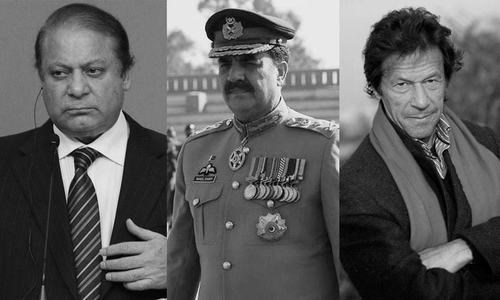It is an easy argument to make either way, but people must make up their minds about it one way or the other. While protests remain a democratic right, the costs can be high.
Indeed, the cost of the PTI protests to the country and the economy is very large, if measured in terms of the erosion of confidence, the muddying of the Pakistan narrative for foreign and domestic investors, and the weakening of the state’s controls over the economy and its ability to discharge its regulatory and oversight duties.
There may not be an immediate impact in terms of loss of output or damage to infrastructure, but the cost to the underlying pillars upon which a market economy operates can be immeasurable. However, some of these costs are avoidable.
Already, the state has impounded containers laden with export consignments to use as obstacles in the path of the protest caravans in a repeat of what was done two years ago when the same scenario played itself out. Needless to say, this tactic does incalculable harm to our exports that are already suffering.
The stock market has lost more than 1,500 points since hitting its historic high this month, an indicator of the storms of uncertainty unleashed in the investor community.
The former is an example of an avoidable cost, while the latter represents an enduring loss whose effects will linger long after the affair is over and the market has regained its momentum, because the damage done to investor sentiment in manufacturing will take far longer to repair.
Those participating in the protests may ask: what are the costs of not protesting? This is a fair question, because business as usual is also marred by its many dysfunctions, primarily poor governance, a bad security environment, and corruption.
But, at the same time, it would be naïve for protesters to think that should they succeed in their goals, the dysfunctions will disappear. The path to repairing Pakistan’s many dysfunctions is a long one, and progress on that road can only be gradual.
The first thing to be fixed is the political system, more specifically the path to power and the means through which power is legitimised. The more we politicise that, the more we undermine the very tools with which any course correction can be undertaken.
To fix the economy, the ship of state must be steady and resting on an even keel, and it must be clear to all contestants in the political arena that there is only one path to power — and that leads through the ballot box. Any loosening of this principle weakens the ability of the state to address its own dysfunctions regardless of the intentions of the rulers.
These protests exact a cost from the economy that outweighs any benefits that the protest leadership promises.
Published in Dawn, October 31st, 2016












































